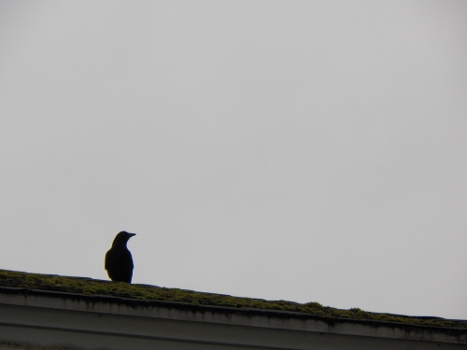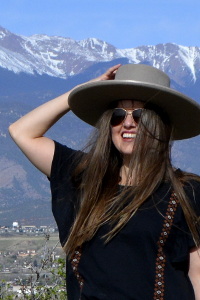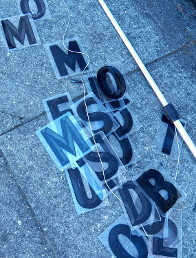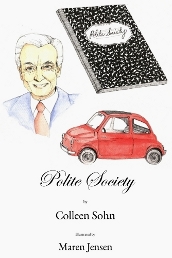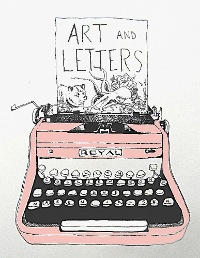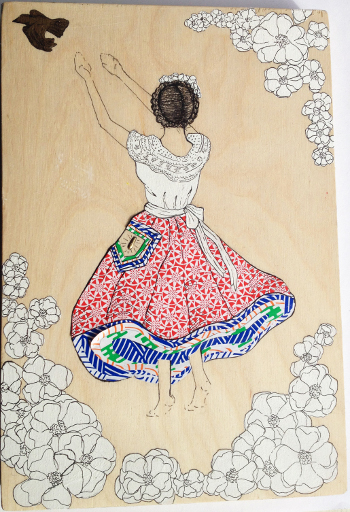
Pancho’s Bullet
Cora met Pancho Villa when she was eight years old, at a party with her father, somewhere near her childhood home and the site of a great battle between his army and the Americans. The reason for her attendance, and more importantly, her father’s, a long unsolved mystery.
She often wondered if she’d dreamt it all, the funny Mexican with a larger than life mustache and hat. Were it not for the bullet, taken directly from his bandoliered chest, she’d have no reason to believe otherwise. But there it lay, cool in the palm of her hand, exactly as he’d placed it, so many years ago.
Spied from a distance, she became curious and stalked the great character, stealing glimpses from behind broad legs and skirts, and anything else capable of concealment. Though she never saw him take a drop of liquor, he ate and talked and laughed more than her father, which was quite a feat.
Despite these obvious distractions, the surveillance did not go unnoticed, and he turned and surprised her, facetiously asking if she was an assassin. She tried to flee, but could not, and he charmed her like all the ladies, mustache wriggling like a caterpillar. Before releasing her from his grasp, he ceremoniously removed the bullet and said it would protect her, as it had him against the backstabbing Americans. She didn’t dare tell him she was one of them, born and raised, before running off, quick as her legs could take her.
Since then, it had never been out of her possession, for twenty-five years a talisman and her greatest secret, kept hidden under her pillow, in a pocket, or the folds of her purse. She even brought it into the bath, afraid some calamity would befall her if it wasn’t within reach or the lead pressing firmly into her palm.
Then she met Clement, raven haired and handsome, a dazzling smile wide as the sky, and eyes wild for her, a spinster and hopeless cause, or so she thought. But there he was, smiling and joking at the library, eager for her help, eager for a word to spill from her lips and into his heart.
He was a crop duster, a daredevil of the sky, swooping in craven low loops and up, up again, and more at home there, curls whipping like wings, than nearly any place, save where Cora was.
They quickly found themselves married, and ecstatically so, with warm days spent on bicycles or their naked bodies tangled in clear lake water. In the cool of autumn and winter, she brought home books to read together before listening to records or their favorite programs on the radio. He sometimes took her out in his plane, sharing a glimpse of the world from God’s eye, despite her fears and a sincere belief that only birds were meant to fly. It was at these moments the bullet soothed her most, and, quite possibly, kept them both alive.
Then came The War and Clement’s fidelity to a certain ideal and his beloved country. He would be a paratrooper, and his body, not a cloud of chemicals, raining onto a faraway land.
She hated the thought, hated the epic distance it would take him, and worse still, what might happen. As his departure drew nearer, she wished for an answer, for something to keep him safe, the lead of Pancho’s bullet digging deeper into her skin, and for the longest time not realizing that it was the solution.
Then, on that fateful day, she said her goodbyes and pressed it into his palm, the story of its presence and a multitude of tears soothing her like a balm. He stood, at first mystified that she could keep such a secret, then grateful for all it meant, and hugging her with all his might.
On the day of Clement’s first mission, as the plane climbed higher and higher, Cora rode her bicycle down a favorite country road, missing him terribly. A crow, swirling high above, caught her eye, and as it swooped down, there was Clement, hand firmly over his breast pocket, a magic bullet, and a photograph of his beloved.
…
Art & Letters is a collaboration:
Story written by Colleen Sohn
Artistically interpreted by Maren Jensen

 To live in hearts we leave behind,
To live in hearts we leave behind,

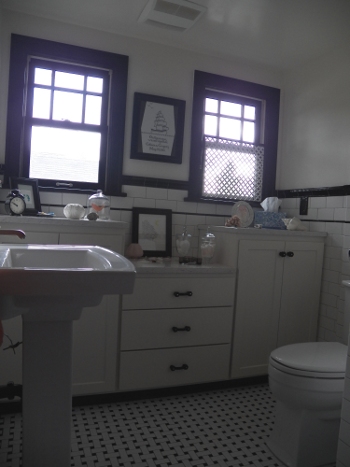
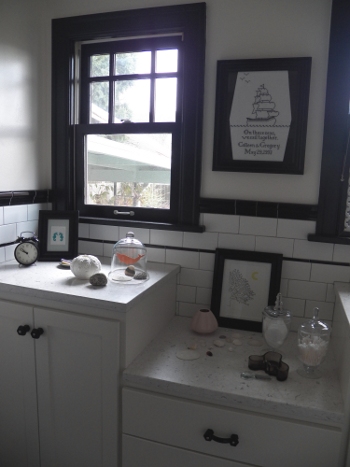
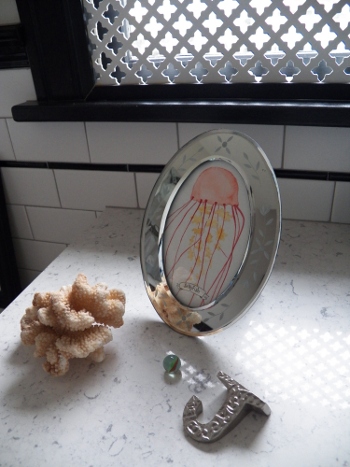



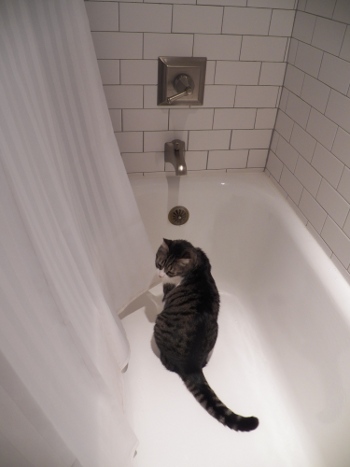
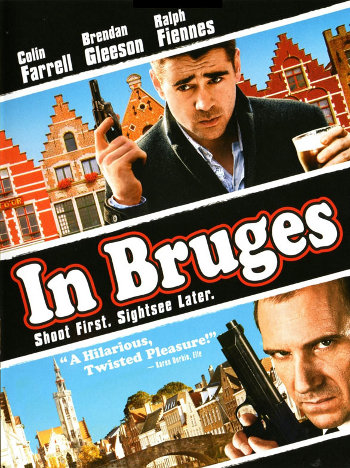 In Bruges, takes place in, you’ll never guess, Bruges! Or “fucking Bruges” as Colin Farrell’s character often says. He plays Ray, a hit man who makes the rookie mistake of murdering a boy along with his mark. He’s in Bruges with his partner and sort of mentor, Ken (the brilliant Brendan Gleeson), while they wait for the dust to settle back in London. I’ve seen this fil-um touted as a comedy, and while there are some humorous moments, don’t go in thinking that it’s going to be funny. It’s actually very melancholy and quite beautiful, save for the end. Avert your eyes, for there will be blood, my friends.
In Bruges, takes place in, you’ll never guess, Bruges! Or “fucking Bruges” as Colin Farrell’s character often says. He plays Ray, a hit man who makes the rookie mistake of murdering a boy along with his mark. He’s in Bruges with his partner and sort of mentor, Ken (the brilliant Brendan Gleeson), while they wait for the dust to settle back in London. I’ve seen this fil-um touted as a comedy, and while there are some humorous moments, don’t go in thinking that it’s going to be funny. It’s actually very melancholy and quite beautiful, save for the end. Avert your eyes, for there will be blood, my friends. Troubled Water is Norwegian and tells two perspectives of the same event. The life of Thomas after his release from prison for murdering the boy, and Agnes, the mother of the murdered child. Each takes half of the film and merge in the end.
Troubled Water is Norwegian and tells two perspectives of the same event. The life of Thomas after his release from prison for murdering the boy, and Agnes, the mother of the murdered child. Each takes half of the film and merge in the end.